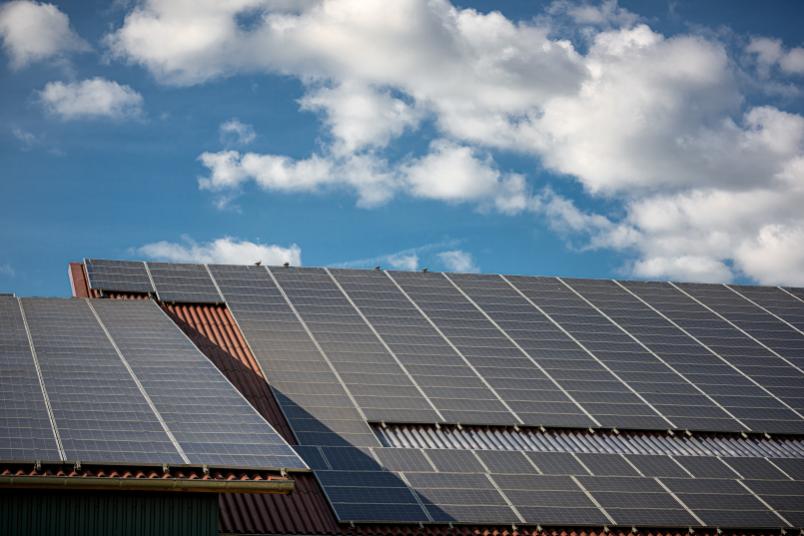
Management and Economics
New key figures and concepts for a circular economy
An economic system that is only designed for output without considering the environment is no longer appropriate today. RUB researchers are suggesting alternatives.
New concepts for sustainable patterns of production and consumption have been developed by researchers at the Bochum Chair of Production Management. Using the example of photovoltaics, the team led by Professor Marion Steven has designed an economic ecosystem that would ensure a sustainable circular economy. The researchers also suggest a new key figure to measure the productivity of companies while taking environmental aspects into account. Rubin, the scientific magazine from Ruhr-Universität Bochum (RUB), reports on their work.
Exploiting the potential of photovoltaics
The aim of the circular economy is to use, reuse, repair or recycle materials and products for as long as possible to keep the environmental impact low. Ideally, a system of this kind does not produce any waste at all. At the Chair of Production Management, Verena Aufderheide and Laura Montag have developed a circular system for photovoltaic systems.
Three barriers have so far prevented the potential of photovoltaic systems from being exploited: financial, technological and ecological. When people are interested in purchasing a solar energy system, they are initially faced with high investment costs. This can deter them from making what is actually a sensible purchase. “Those wanting to buy a photovoltaic cell also need to get to grips with many technical aspects – as people want to choose the right product from the many options available. It is, after all, an expensive purchase for many years,” explains Laura Montag. Added to that are the problems already described, which occur later on during disposal or possible repairs and also require special expertise.
Digitalisation for better coordination
The researchers’ economic ecosystem therefore does not envisage that customers will purchase their own solar cells at all. Instead, they hire the products. This saves them from incurring any investment costs, and the expertise can be consolidated at a corresponding company. In their concept, the researchers list all of the actors and services required for a circular photovoltaic system, from the manufacturer to the operator, right through to the consumer and disposal company. The concept also incorporates industry 4.0 approaches, such as an app allowing the condition of the photovoltaic system to be checked. After all, digital systems can help to better coordinate the entire process.
A green productivity index
Verena Aufderheide also developed the Green Productivity Index as a means of measuring the sustainability of a company. The economic performance of a company can be assessed using the established productivity index. However, this overlooks the ecological and social effects of the activities. A company that has a severe impact on the environment but produces a great deal can thus achieve good key figures. “We want to place a greater focus on environmental impact,” says Aufderheide.
The Green Productivity Index makes it possible to compensate for the generated environmental pollution using measures that protect the environment, such as recycling. Productivity and environmental impacts can also be weighted in the new formula using a factor. A company can thus decide what it wants to focus on. “My desired outcome would be that companies will eventually use the Green Productivity Index for their sustainability reporting,” says Verena Aufderheide. “A company can use the index, for instance, to calculate whether certain measures make it more sustainable over time.” Comparisons between companies in an industry would also be conceivable.